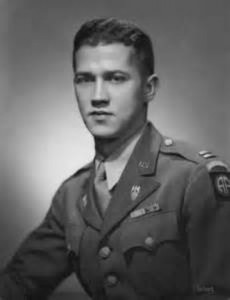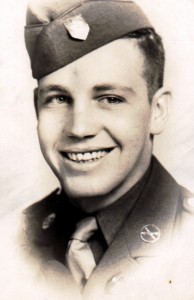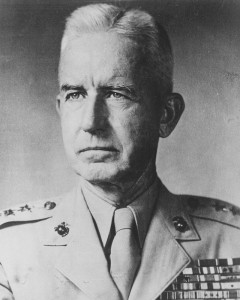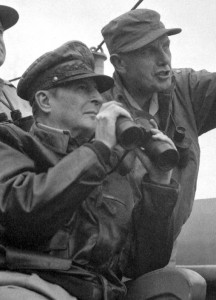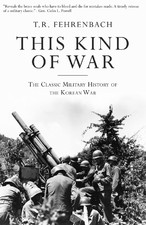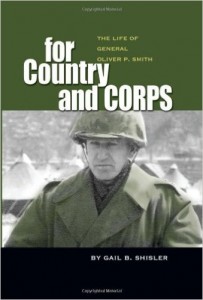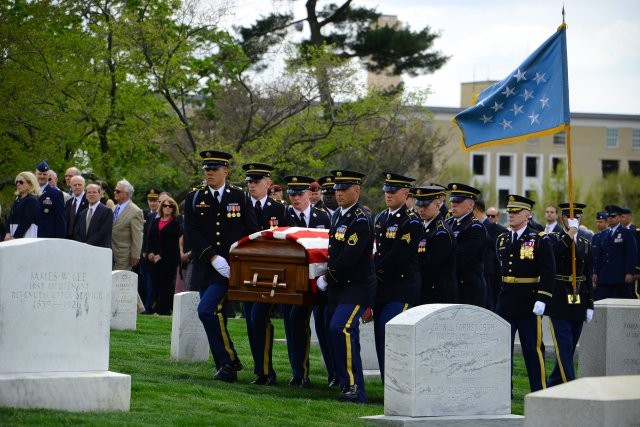 April 17, 2013 Arlington Cemetery (US Army)
April 17, 2013 Arlington Cemetery (US Army)
“The water downstream will not be clear if the water upstream is muddied…”
-Korean Proverb-
Part II, Part III, Part IV of BOTH SIDES OF THE CHOSIN
Lt. Colonel Don Carlos Faith Jr. came home to stay on April 18th of 2013. He had been born in Washington Indiana in 1918. Son of a General, he had applied for West Point, but failed his dental exam. He volunteered for the draft shortly before graduating from college in June of 1942. Declined for the same reason he applied for a waiver and was sent to OCS immediately after graduation.
Faith was assigned to the 82nd Airborne. A staff officer and aide to one of the finest officers in the history of the Republic, Matt Ridgway, he made every jump… Sicily, France, Holland and Germany. At the end of the war in Europe he was assigned, as a Lt. Colonel, to the staff of General Maxwell Taylor. After the war in the Pacific ended, he spent some time in China, then an assignment in the 7th Infantry Division in Japan.
But that was then. This April day, Faith arrived at his final post… Arlington National Cemetery. Getting here had taken a while.
………………………………………………….
…Late June 1950; 1st Lt. Harold Myers drove into a hotel parking lot in Boise Idaho. With him, his wife of eight years, his seven year old daughter and his one year old son. Long hot drive from Fort Sill Oklahoma to a dirt ranch near Shoshone Idaho to visit his half-breed Cherokee father and youngest siblings. From there to Boise and on to San Francisco. Then the -real- long trip… to Japan.
When Harold got past six feet tall, as the oldest boy, he decided to leave home while The Great Depression was still in full swing and sign up with the Civilian Conservation Corps (CCC). He had heard that you could get “three hots and a cot”, good food (all you could eat) good clothes, medical care… and good hard work. They even sent some of your pay home to your folks. He prospered there and when he got old enough to join the Army, they gave him an outstanding written recommendation.
He and the Army took to each other. By Pearl Harbor he was a Corporal in the Artillery. He accompanied the Third Infantry Division to North Africa, Sicily, Italy, France, and Germany… picking up a battlefield commission along the way. Staying in as a “career reservist”, he had been sent from Fort Riley Kansas to Fort Sill for a series of courses. Now he and his family were heading to Japan.
But at the hotel in Boise, Myers heard something about the North Korean People’s Army (NKPA) boiling across the border into South Korea. His duty was clear… he wired his transit command at San Francisco and asked for instructions. In the few days before they got back to him, he got his family set up in Boise. Fair bet that his leave and family going to Japan was no longer in the cards. He got a wire instructing him to dump family (no more dependents being sent to Japan) and be on a train to San Francisco within 24 hours.
Upon arrival, the Army had him on a plane to Japan. He heard that there were orders being cut to assign the Third Infantry Division to MacArthur’s command for the duration of the conflict. The Third being his outfit all through WWII, Myers requested that he be assigned to the unit. But it was not to be… There was a rumor (false) that the Third was going to become a “Colored” division… and in any event, units already in theater were desperate for bodies… especially combat experienced ones.
Myers found himself assigned to the 7th Infantry Division. During the war the unit did a good job in the Pacific, finishing up at Okinawa. But the 7th was no longer the same division in July of 1950 that it had been in June of 1945.
So many had demobilized at the end of the war. Regulars transferred or retired or did not reenlist. Kids with peacetime training and lacking in military discipline had filled the 7th… and the other occupation divisions in Japan. But at least they got to know each other.
Even as new men started to arrive, the 7th was gutted. It went from an under-strength unit of 18,000 men to 9,000 almost overnight. The first divisions sent from Japan had been under-strength as well… worse, they had been committed piecemeal. Some units had been badly chopped up. The only timely source of replacements was the 7th.
It would take time to get new men by sealift from the States… but some, like Myers… had been flown in.
Myers had one bit of good news… the Army had stripped many of its artillery instructors from Fort Sill and flown them to Japan and assigned them to the 7th Division. He knew many of them. At least the 7th would have good artillery batteries.
MacArthur decided that rather than reinforce the slugging match down at the Pusan perimeter, he would throw an amphibious left hook at Inchon. It was close to the South Korean capital, a large military air facility… and near a chokepoint on major roads and rail line. Unfortunately, it had the second worst tides on the planet. (Inchon has tide range of 27.1 to 33 feet, exceeded only by the Bay of Fundy…)
The Navy and the Marines were not keen on Inchon. But MacArthur knew that once ashore, the NKPA in the South would have to retreat or perish… and his landing force could serve as an anvil to 8th Army’s hammer.
The force landed would be a corps… initially of two divisions… 10th Corps. The logical commander to place in charge of the landing was Lt. General Lemuel Shepherd, USMC… top ranking Marine in the Pacific Theater. MacArthur got along splendidly with Shepherd, but told him that he had already promised the position to Ned Almond… his Chief of Staff. Shepherd had three stars, Almond two. Shepherd had served in some of the toughest amphibious campaigns of WWII… Almond had absolutely no knowledge of amphibious warfare.
Edward Mallory “Ned” Almond (1892-1979), born and raised in Virginia, would be the overall commander of forces on both sides of the Chosin and his ambition and failings would massively shape events there. Not a fool or a villain… actually gifted in some ways. But his failings, experiences, and ambition would prevent him from reaching his potential… and cost the Republic dearly.
Almond graduated from Virginia Military Institute (VMI) in 1915 and was commissioned in the Army in 1916. He served with the 4th Division in France in the closing months of WWI. After the war he served in routine assignments and went to the usual schools.
As WWII approached, he came to the attention of George C. Marshall (a VMI graduate), the Army’s Chief of Staff. Almond’s intelligence and drive… line and staff skills… put him in some very fast company… officers who had Marshall’s favor.
Marshall made Almond a Major General and gave him his own division in October of 1942… the 92nd Infantry Division. It was a challenge, and if Almond could measure up… Marshall would propel him to greater things. It was not to be.
The 92nd was a “Colored” division. Many of the white officers had been dumped there by other units in the Army who did not want them. The unit carried bolt action Springfields long after other units had theirs replaced by M-1 Garands. Other equipment was “past pull date…” Most officers cared little for the welfare and morale of their men… and the men cared nothing for most of their officers.
Marshall knew all of this. A great commander would “take lemons and make lemonade…” Almond couldn’t run to Marshall to improve everything… but he could have asked him for one thing… not new white officers… but the authority to drop inferior ones from the division back to the Army’s officer pool and promote from within without any interference from Corps or higher levels.
The remaining white officers would either shape up or be gone. Educated black enlisted men could be sent to an officers course (even if Almond had to create one in his unit…). This one favor Marshall probably would have granted. The division would then make the most of its equipment (until replaced) and train until Hell wouldn’t have it. The division might have shined. But it was not to be.
Unfortunately (whatever his apologists might say), Ned Almond was a racist. Too much of a gentleman to be into white sheets no doubt… probably didn’t even see himself as a racist… But his fatalistic dismissal of the potential of black soldiers… combined with an oppressive paternalism made him the wrong commander for the 92nd. He could not rise above his prejudices.
He, and many of his officers expected little of their troops… and indeed got little. Their performance, as a whole in WW2 was “disappointing…” Marshal’s eye had long since moved on.
Almond blamed the black soldiers for the division’s poor performance in combat. He told anybody that would listen that blacks made poor soldiers and the Army should never use them again as combat troops.
He blamed them for his career having stalled.
Almond was famously quoted as saying, “No white man wants to be accused of leaving the battle line. The Negro doesn’t care…people think that being from the South we don’t like Negros. Not at all. But we understand his capabilities. And we don’t want to sit at the table with them.” If Marshall ever heard this, it didn’t help Almond’s case…
Almond felt that his career was going nowhere. Marshall had taken a Lt. Colonel named Eisenhower and raised him to five stars. Almond was left behind. To make it worse, in 1946 he got orders to join MacArthur’s staff in Tokyo.
Officers who had served in the European Theater were not made to feel welcome by the staff in Tokyo… especially ones with a lackluster record. Almond was assigned as head of Personnel… a nowhere job. But with the Army shrinking, the office was in chaos.
Almond showed his very real talent and whipped the whole mess into shape. MacArthur himself took notice… and suddenly Almond was “one of the boys…” at the Tokyo command. In January of 1949, MacArthur made Almond his Chief of Staff. Almond had been rehabilitated and from then on would practically “worship at MacArthur’s altar…” and would never say no to him. In return, MacArthur was fond of Almond… and prone to be indulgent.
And now MacArthur had promised him the Corps command. Another star would no doubt follow. Of course, he was patently unprepared to command a complex amphibious operation. MacArthur knew enough about amphibious war to understand that. Almond would have the title… but be kept carefully at his side while the Navy and the Marine Corps did their thing in the assault without any meddling. Once the amphibious phase was over, Almond could be allowed off the leash.
Almond by now had developed a massive superiority complex to everybody below MacArthur… even if they were senior to him. Not a good trait in a commander. To keep up the pretense that “his steering wheel was actually connected to something,” he was introduced to Lt. General Shepherd… amphibious expert and the officer that everybody but Almond knew should have been given the command.
A lot of officers at the Tokyo HQ expected fireworks. Almond was not only Corps Commander, but MacArthur’s Chief of Staff. Nobody expected even bare courtesy towards Shepherd in spite of his experience and having one star more than Almond. But it went fairly well. As it turned out, Shepherd was a fellow VMI graduate… and Almond was extremely polite. Shepherd got along ok with Almond and saw nothing to set off any alarm bells other than his lack of amphibious knowledge.
Almond “graciously” offered Shepherd a position under him as his amphibious adviser. He certainly would have needed one. A visit to a Navy base had not gone well… he saw some amphibious vehicles and asked if they could float. This quickly got around.
Shepherd was not inclined to serve under an officer that he outranked. Also, MacArthur had dropped enough hints around Shepherd to let him know that Almond’s “steering wheel wasn’t connected to anything…” Shepherd smiled and offered to be present on the command ship as an “observer…”
The 1st Marine Division was going to handle establishing a secure beachhead. Then, and only then, the 7th Division would be “administratively landed” and deployed and Almond could exercise command over the 10th Corps.
Almond introduced himself to the Commanding General of the First Marine Division, Oliver P. Smith and showed none of the grace that he had displayed with Shepherd. Smith was an extremely tall, thin man with heavy combat experience, including the nightmare at Peleliu. White hair… soft spoken, almost never known to swear. In mufti he might have been mistaken for a college professor… especially with the pipe that he smoked. But he was both brilliant and made of iron.
Getting off on the wrong foot, Almond called Smith “son” even though he was only ten months older than Smith. He then insisted on informing Smith how easy amphibious landings were. Hard to take, coming from an officer who had never planned or taken part in one.
He was very patronizing to Smith… as if those holding a Marine commission weren’t “real” officers. Smith had not only attended a number of Army schools for senior officers… but from 1934 to 1936 attended and became the first Marine Corps officer to graduate from the French Ecole Superieure de Guerre in Paris. No point in his mentioning this to Almond.
Meanwhile, the 7th Infantry division was getting more replacements. Many were green and not properly trained or disciplined…but could work out given enough time. One company got 70 guardhouse “regulars” dumped on its doorstep… (Against all expectations, this group performed well in combat…) Some officers and NCOs arriving were good quality with combat experience. A fine group of recent West Point graduates… but for various reasons they had not been sent to branch schools after graduation. The class of 1950 would lose many fine new officers before the year was out.
But the fly in the ointment was that there were not enough bodies… and would not be… prior to the scheduled landing at Inchon. MacArthur came up with a “solution” during a casual conversation with South Korean President Syngman Rhee. It was decided that South Korea would loan 8,600 Korean “soldiers” to the 7th Division.
A few of these proved to be valuable, including a South Korean surgeon who spoke English. But most had been scooped up off the streets and from villages and within days sent to Japan. These were mostly frightened untrained men who would have been disoriented in their own military… let alone being “incorporated” into a non-Asiatic foreign one.
The high brass had ordained this. Some sort of Frank Capra idea of a “buddy system” that would result in this group… the KATUSA (Korean Augmentation U.S. Army) becoming a bulwark of strength. With the best will in the world the officers of the 7th Division would have rather gone into combat shorthanded. With so little time this was like attaching an anvil to a kite.
Ready or not, X Corps headed for Inchon. The North Koreans and the Chinese and the Russians had all heard that X Corps was headed for Inchon… as had most of the bar girls in Japan. But the Chinese and the North Koreans were convinced that the information had been deliberately circulated… A landing, yes… but not at Inchon… not with its tides… an invasion fleet could wind up sitting in mud.
The Russians decided to send their most modern sea mines just in case. They should have been deployed and ruined the whole invasion. But the North Koreans did not give the shipment a high priority and the day of the invasion the rail cars containing the mines were on a siding more than a hundred miles to the North.
The fleet did not have enough LSTs… At the “request” of the Americans, the Japanese government ordered Japanese firms who had purchased surplus LSTs to send them to the fleet assembly with Japanese captains and crews. Japanese ships with former IJN officers in command acted as a minesweeper unit.
Three Marine regiments were supposed to take and secure Inchon… but one… the 5th Marine Regiment was still down in the Pusan perimeter acting as Lt. General “Johnny” Walker’s fire brigade. He was afraid to let them go. Somebody suggested that a regiment of the 7th Infantry Division could be substituted at Inchon. Almond may have known nothing about amphibious operations… but MacArthur did… He told the Pentagon… no 5th Marines… no landing. They were literally taken directly from combat and loaded on ships.
In spite of everything, the Navy and the Marine Corps did their job splendidly. The North Koreans smugly neglected to send any reinforcements to Inchon prior to the landing and the NKPA troops there were turned into meat paste.
Once the beachhead was completely secure, units of the 7th Division could start landing. MacArthur held onto the reins for a few more days while the Marines took Kimpo air field and charged into Seoul. Marines had engaged in house to house combat only at a couple of much smaller cities in their recent history… on Saipan and Okinawa.
MacArthur had a big ceremony where he presented President Rhee with his capital. The Marines had been rushed… MacArthur declared the city officially “liberated” three months to the day from when it was captured. (The Marines who were still fighting it out for the next 24 hours were probably not impressed…)
The 7th Infantry Division blocked off the roads to the South where fleeing NKPA units would be coming up from the Pusan perimeter. Some of their men held the South part of Seoul where they took some casualties. But essentially the division… while “shaking out” a bit… got no major combat experience.
Eighth Army’s hammer came up on Tenth Army’s anvil… and little was left in between. In the normal course of events, Tenth Corps would have become part of Eighth Army. But Almond was desperate that his corps remain independent of Eighth Army and that he continue to report only to MacArthur.
In addition, Almond had gone out of his way to annoy General Walker. While running 10th Corps, Almond kept wearing his other hat as MacArthur’s Chief of Staff. He would call and demand information that was none of his business… even make “suggestions…” Walker (who had one more star than Almond) eventually demanded to know if he was in point of fact calling as MacArthur’s Chief of Staff (he wasn’t…) Almond knew that MacArthur was contemplating replacing Walker… and he may well have thought that the prize of Army command would be his.
So, to justify keeping Tenth Corps independent, landings were planned on the West coast of North Korea. The Marines, the Seventh Division, two ROK divisions… and before long… the Third Infantry Division would come ashore (in what would prove to be “administrative” landings) and then would go into the interior… head North (into what the Marines came to call the “Never-Never Land”) on their way to the Yalu River… the border with China.
SUGGESTED READING:

